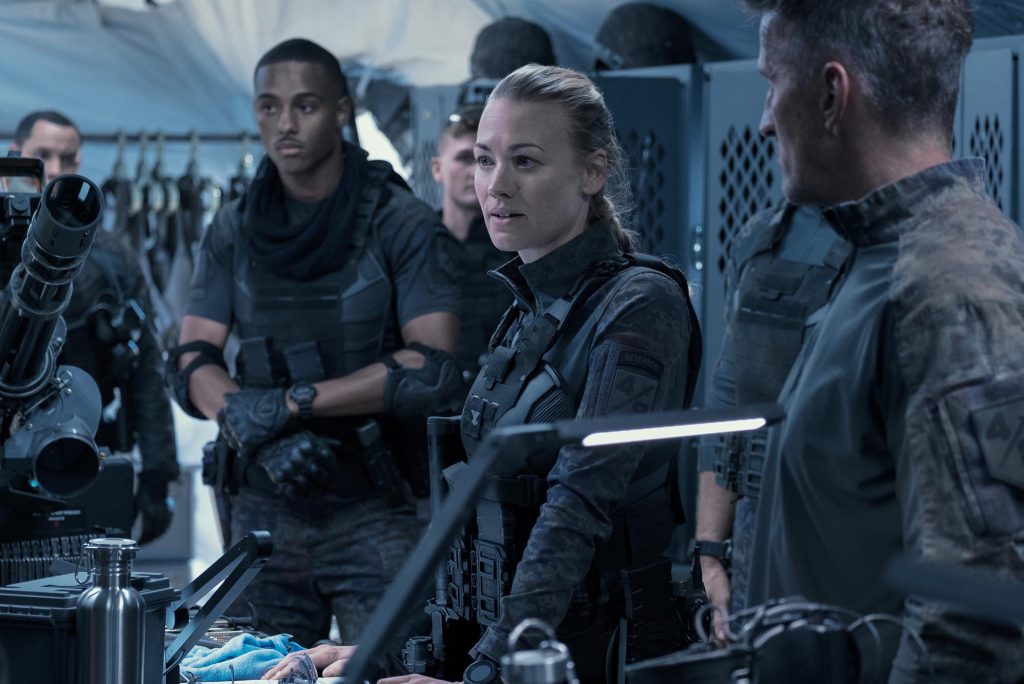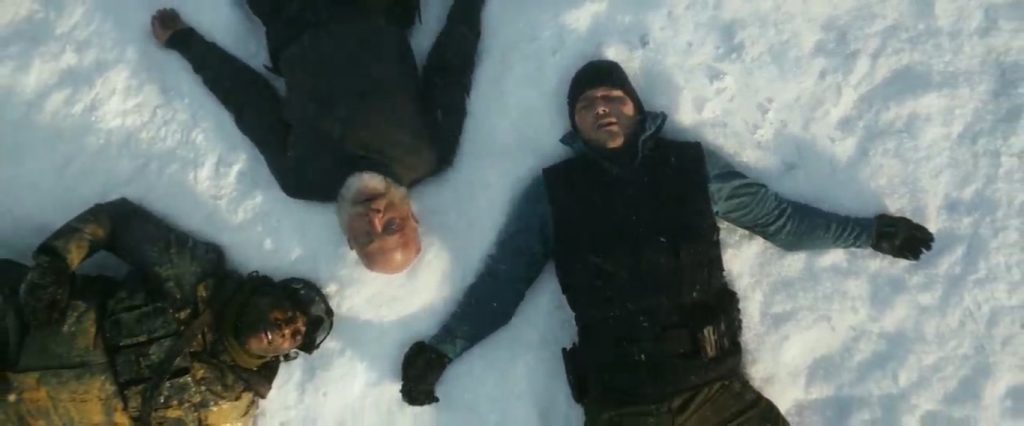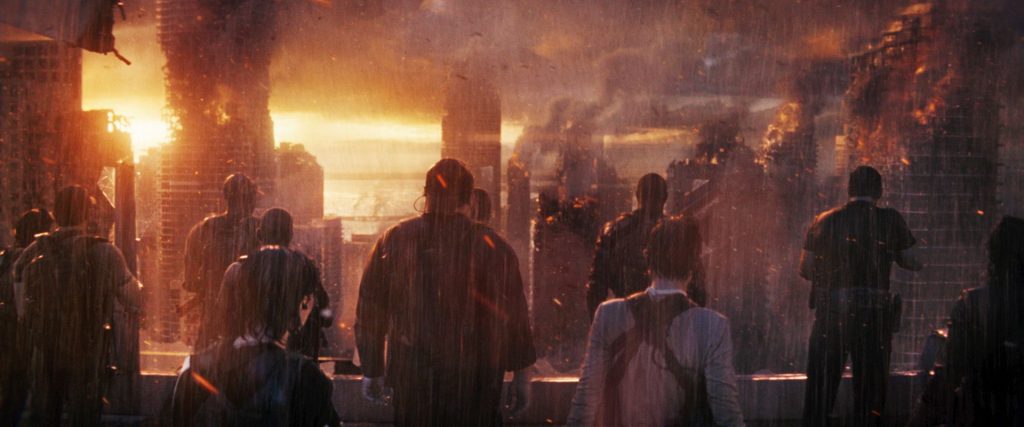The sun’ll come out tomorrow
Bet your bottom dollar that tomorrow
There’ll be sun
Just thinkin’ about tomorrow
Clears away the cobwebs and the sorrow
‘Til there’s none
Director Charles McKay and writer Zach Dean slathered on the sunblock for this shlock, with the inspired title of The Tomorrow War. (A personal note: This humble reviewer began his career as a voracious reader while just a lad devouring science fiction. I can truthfully report there are hundreds if not thousands of good science fiction stories suitable for adaptation to film. Why Hollywood persists in using vapid stories penned by hacks remains a mystery. Although when a master money maker like Steven Spielberg does attempt to transform a science fiction classic such as with War of the Worlds, the result is a confused mess full of dazzle dazzle.
Give ’em the old razzle dazzle
Razzle Dazzle ’em
Give ’em an act with lots of flash in it
And the reaction will be passionate
Give ’em the old hocus pocus
Bead and feather ’em
How can they see with sequins in their eyes?

The director of The Tomorrow War does just that. The Spielberg Method. ( It has yet to fail him). Sadly enough, the director of The Tomorrow War is not Spielberg. Just as well.
The story begins. We are introduced to former special forces operator Dan Forester, (Chris Pratt plays him with a committed bewilderment, having abandoned the cocky confidence of the velociraptor keeper of Jurassic World) who traded-in his M4 carbine for a microscope. He’s a high school Biology teacher who hopes to engender in his young daughter an interest in life sciences.
It all starts with would be sacrilege in some circles. Soldiers from the future spill out from a worm hole onto the World Cup playing field, interrupting the play, to offer some grim news. Those zenomorphs from the Alien movies? Well, their first cousins, known as Whitespikes (a good name for a white supremacist group or 90s rock band)), arrived in 2048 with that cookbook from the Twilight Zone episode titled To Serve Man. From Russia of all places. ( the spaceship that supposedly brought them remains hidden in the frozen Dr. Zhivago wasteland of Siberia. Or does it?) There are only a few hundred thousand people left on Earth by 2051. The rest were the main dish at a Whitespike smorgasbord. Got your attention now, hew-mons?

But gosh darn, here is where we encounter the first problems with this blood fest. The xenomorphs supposedly arrived on Earth in a spaceship no one has ever seen. Another problem. They look like they could not assemble a life raft out of popsicles sticks for Mr. and Mrs. Potato-head’s Miami beach vacation, let alone one of the Alien Engineers horseshoe spaceships. Like all science fiction bug people, Whitespikes have a queen.
What they don’t have, is any form of technology. Armed with only a bad attitude and sharp teeth, they have pushed humanity to the brink of extinction!
The soldiers from the future travel back and forth via wormhole (where was science fiction before wormholes, I ask you?) to recruit canon-fodder, or what would be canon-fodder if the Whitepikes had canons. Multinational conscription supplies the fresh fodder.
So, here is the deal: draftees in our time are sent up the line to 2051. No uniforms, no training of any kind, no packs, no spare ammunition or even a Swiss army knife.

They are handed an assault rifle and told the deployment will last only seven days. And wouldn’t you know it, when arrived in the future, former Green Beret Chris Pratt becomes the leader of his bunch. Is it at all surprising he is tasked with preventing the unpleasant future and saving humanity?
The story is burdened with a “reunite the family theme”, added no doubt to attract Spielberg. J.K. Simmons appears as Pratt’s estranged father, an antigovernment Vietnam vet who just happens to own military cargo plane and enough money to pay for fuel to fly to Russia. Without the Russians noticing.
As to be expected, Pratt’s daughter now grown makes an appearance in the future. Ho hum… Issues to work out.
The absurd story could not have made the cut in a 1928 issue of Amazing Stories. Hugo Gernsback had better sense of story than the people who made this movie (Pratt is a credited executive producer.) It contains the core of an idea, but the execution is botched.